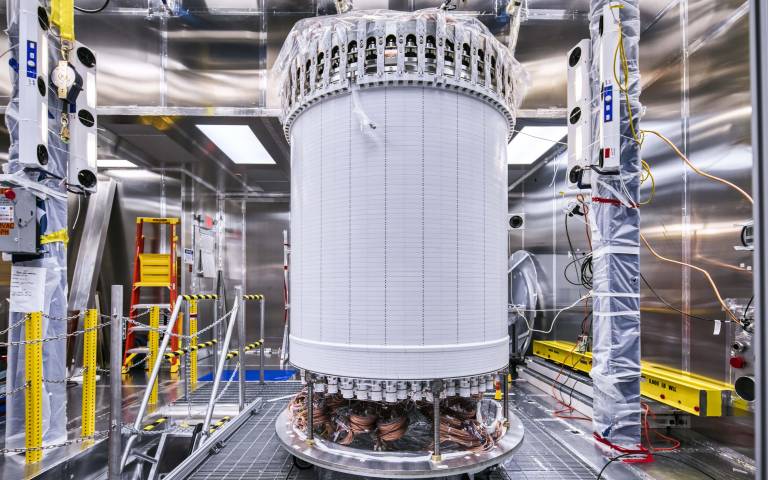Some of the most fundamental questions about the Universe will be investigated by UCL particle physicists, following a £4.34 million award from the UK's Science and Technology Facilities Council (STFC).

The funding is part of a £60 investment from STFC awarded to 18 universities, helping to keep the UK at the forefront of particle physics research.
Particle physicists study nature at the smallest possible distance scales and the highest achievable energies, seeking answers to questions about the structure of matter and the composition of our universe.
The UCL High Energy Physics Group works at the high-energy frontier, examining the nature of the Higgs boson at the Large Hadron Collider (LHC) and preparing for new, higher-intensity collisions that may reveal evidence of physics beyond the so-called "Standard Model".
Professor David Waters (UCL Physics & Astronomy), leader of the UCL High Energy Physics Group, said: "This support from STFC and UKRI enables the UCL High Energy Physics group to continue to lead world-class projects addressing pressing questions in collider physics, neutrino physics, precision muon physics, the search for dark matter and much else besides."
Professor Andreas Korn (UCL Physics & Astronomy), a primary investigator, said: "We particularly appreciate the continued support for our highly skilled engineers and technicians who make our experiments a reality and enable us to do cutting-edge science. The grant also provides the background and infrastructure to develop our PhD students into the highly skilled scientists and employees of the future."
The UCL High Energy Physics Group leads a number of experiments probing the properties of the most abundant matter particle in the universe - the neutrino. These experiments will measure the asymmetry between matter and antimatter in the neutrino sector, and may cast light on the mechanism that has generated the cosmological matter-antimatter asymmetry; the group also leads UK efforts to measure the flux of the highest-energy cosmic-ray neutrinos.
One of the most exciting discoveries in physics in the last year has been that the magnetic dipole moment of the muon (the heavy partner of the electron) does not precisely agree with theoretical predictions, and UCL researchers are pursuing several experiments to further examine the properties of the muon.






